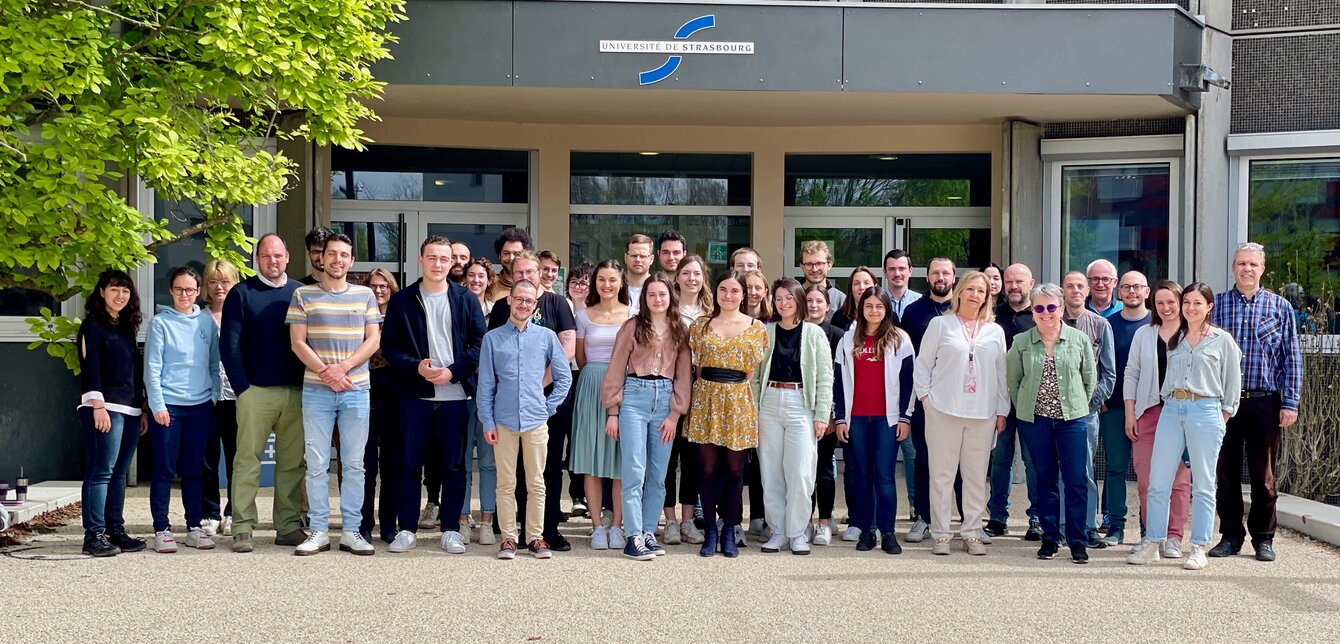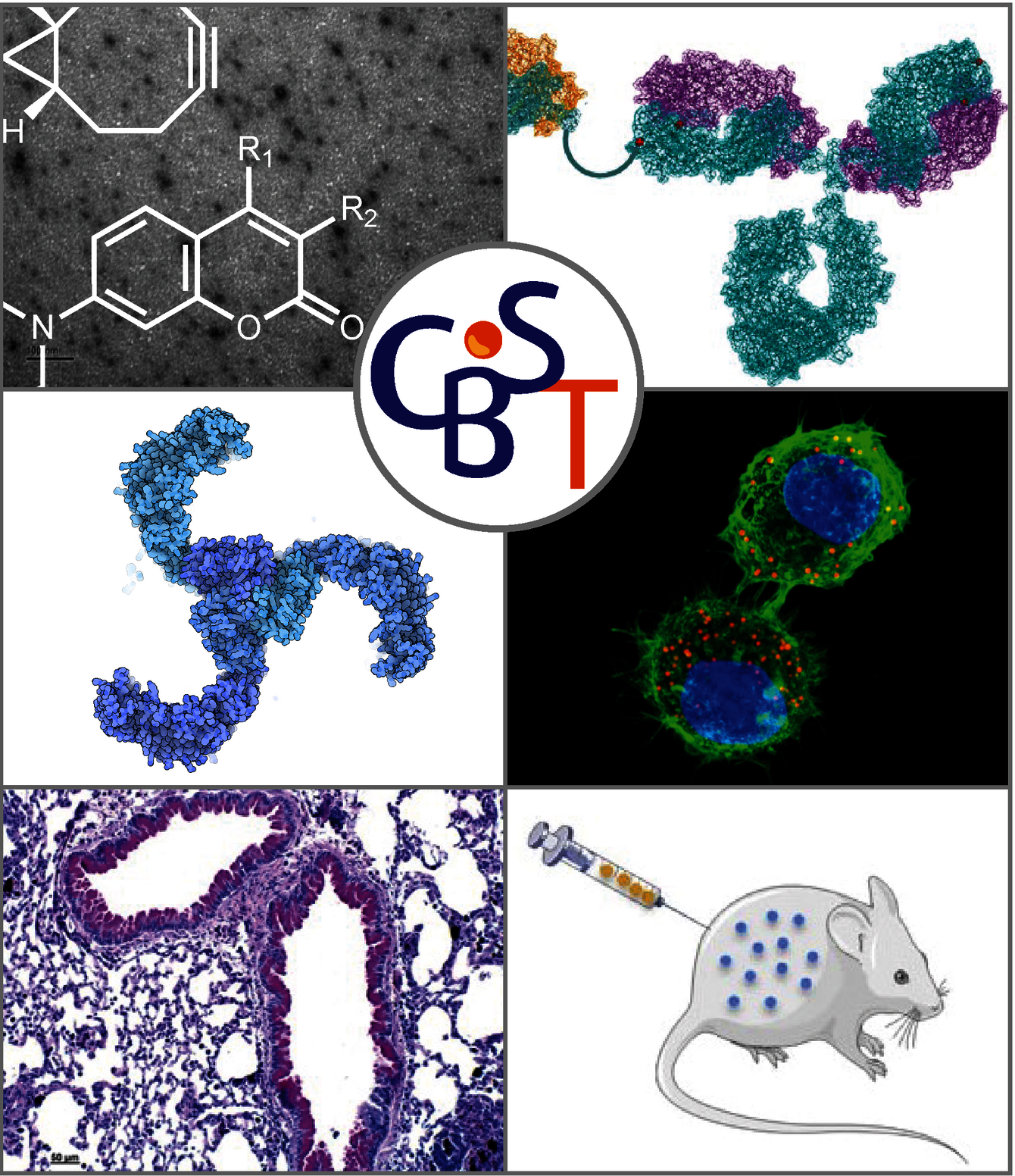Page contents
Our research themes
Our lab (formerly CAMB) performs in several areas, such as the development of photosensitive probes targeting membrane receptors or ion channels, the elaboration of new bioconjugation reactions, the design of new materials applied to cellular imaging, controlled release of active principles, vectorization, or in vivo chemistry. The unit brings together a community of chemists and biologists in equal measure.
Our research activity, supported by four research teams and two supporting platforms, is focused on the following themes:
- Designing new chemical tools such as bioactive molecules, photosensitive probes or photoresponsive materials, as well as smart particles capable of responding to their environment (bioresponsives).
- Developing new reactions on living organisms, such as bioconjugation and biorthogonal reactions, for cellular imaging, delivery of active principles (antibody-drug conjugates), or diagnostic tests (microfluidics).
- Understanding and describing the fundamental biological or biophysical mechanisms of cell communication (receptors and ion channels) by applying the new chemical concepts developed within the unit.
- Developing new therapeutic solutions based on "smart drug delivery systems".
The pathologies targeted in the lab include cancer, pulmonary diseases, nervous system diseases and cardiovascular diseases.
Interdisciplinarity and Innovation
The laboratory's interdisciplinarity is reflected in the diversity of techniques used, ranging from organic synthesis to animal experimentation, including analytical chemistry, spectroscopy, molecular biology, cell culture, high-resolution cellular imaging, and patch-clamp electrophysiology.
The laboratory's interdisciplinarity is also reflected in its affiliation with three Interdisciplinary Thematic Institutes (IMS, Innovec, and NeuroStra) and the EUR EURIDOL.
The lab is affiliated to two Doctoral Schools: ED 222 and ED 414.
Finally, our lab stands out for its strong valorization and innovation activity (notably with SATT Conectus and CNRS Innovation), with the creation of several startups (Polyplus-Transfection, Novalyst Discovery, Phytodia, eNovalys, Syndivia, MicroOmix) and the coordination of an European Innovative Training Network (ITN TACT).


